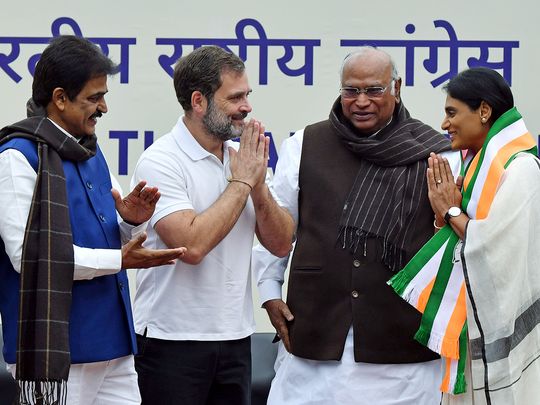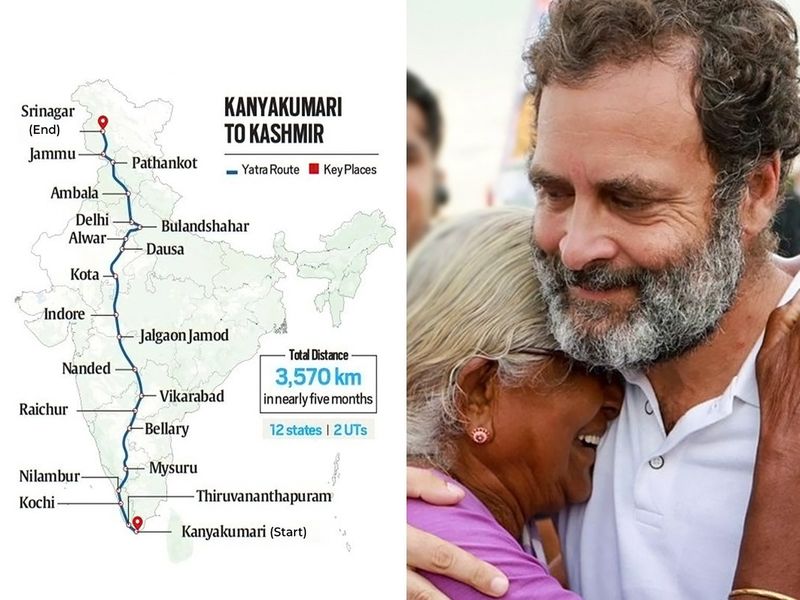
Sequels are rarely as successful as the debut book, movie or political campaign. It is tempting to always repeat what worked once.
The Congress party is so happy with the success of the Bharat Jodo Yatra (Unite India March), which took place from September 2022-January 2023 that they want to repeat the Yatra, this time from east to west, Manipur to Mumbai, January to March 2024.
How do we understand the success of the first one? The charitable answer would be that it stemmed the decline of Rahul Gandhi’s image, and consolidated the Congress voter base, perhaps holding off the rise of ‘third’ players seeking to displace the Congress.
As for Rahul Gandhi’s image, it helped shed his image of being inconsistent and half-hearted about politics.
But that’s about all. It did not help bring new voters to the Congress party. If the Congress has won Karnataka, Telangana and Himachal Pradesh since BJY, it has also lost Gujarat, Madhya Pradesh, Chhattisgarh and Rajasthan. No one can say that Rahul Gandhi or his Bharat Jodo Yatra made any difference whatsoever in how voters have perceived the Congress party when it comes to making electoral choices.
Perhaps that’s because these were state elections where local issues and the local lawmaker’s image matter a lot.
Which is why the “Bharat Jodo Nyay Yatra” has a lot more riding on it. This Yatra, which will be much shorter and won’t be entirely on foot, is repeating some of the mistakes of the BJY.
Spiritual over temporal
For one, it has a vague theme — justice — just as BJY focused on unity. History tells us that the most successful campaigns focus on a very specific, tangible demand: create a temple (Ram Janambhoomi), give us a new law (Lokpal movement) or remove laws we don’t like (protests against farm laws in 2020-21).
Mahatma Gandhi’s campaigns always had a specific demand and/or call to action: burn foreign clothes, don’t cooperate with the colonial government, stop exploitation of Indigo farmers, stop practising untouchability, and so on.
When yatras take place on the eve of elections, they may sometimes have vague themes but they’re nevertheless election-oriented, defined by election promises or specific purposes such as exploiting or negating anti-incumbency.
Five years ago Rahul Gandhi campaigned on specific issues — Rafale corruption allegations and a promise of a minimum basic income scheme called NYAY — and failed. Perhaps that’s why he has turned to vague themes like Unity and Justice. Some of this is motivated by Rahul Gandhi’s increasing shift from the temporal to the spiritual. If you can’t be king you could always be philosopher.

Ideology over economy
BJNY will at best do what BJY did: consolidate supporters and existing voters, helping to retain the 19.5% or so vote share the Congress won in both 2014 and 2019 general elections.
What the Congress needs is not a retention strategy but an expansion strategy. An effort to increase votes in an election where everyone knows the BJP is winning anyway would at least bring some incremental gains. Even if it fails it will help retain existing voters anyway.
Of course, the BJNY will talk about all of India’s myriad problems just like BJY did. But nothing will stand out. The magic number in all campaigning is one. That one theme, one idea will be Justice, Nyay, no matter how much Rahul Gandhi says this campaign is about jobs and inflation, it will always be seen as about being Nyay, Justice, and come across as more about ideology than economy.
Ideology will help you retain your core voters. It is economy that brings the swing voters.
Rahul is the message
Rahul Gandhi holds no post in the Congress party and was given a safe seat in Kerala when he rightly feared he could lose the family pocket borough of Amethi.
With Mallikarjun Kharge as the party president, Rahul Gandhi continues to be the party’s face and de facto leader. The real message of the Bharat Nyay Yatra, just like the Bharat Jodo Yatra, is that ‘our leader is Rahul’.
The trouble with this is that just when the party needs to focus on winning an election it will instead be focusing on Rahul Gandhi. Party leaders and workers across India will rush to the Yatra to get that one selfie for social media, helping them show off ‘access’ earn brownie points with the party ‘high command’. This can actually hurt the campaign on the ground where it is needed, especially in pockets of the party’s influence in south India.
The Bharat Jodo Nyay Yatra lacks novelty because it’s a sequel without a radically different theme. It is not on foot and much shorter, and thus runs the risk of coming across as a pale shadow of the original Bharat Jodo Yatra. The Congress would have worried about things like these if it was even trying to win the election. All it’s trying to do is to save Rahul Gandhi’s image.
We can be sure that president Mallikarjun Kharge will take ‘moral responsibility’ of the party’s inevitable poor performance in the Lok Sabha and offer to resign.
His offer will be rejected by the Congress Working Committee, a group of Gandhi family loyalists. May will turn into June, and happy with all the plaudits from ideological supporters, Rahul Gandhi will get the license for another vacation.









